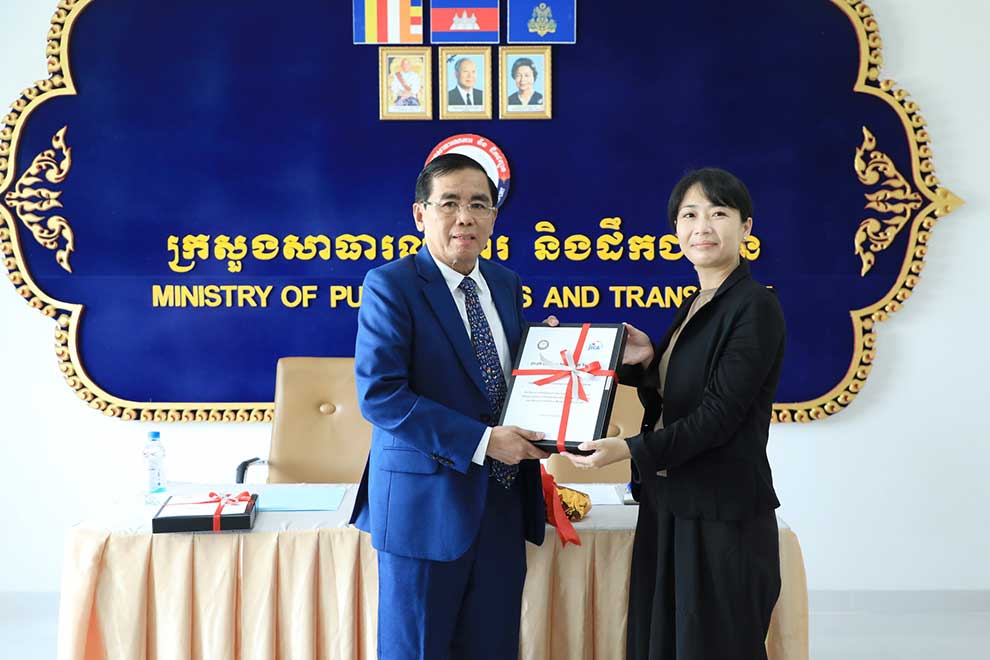
Ministry secretary of state Pal Chandara and JICA senior representative Miyahara Ai on Monday. MPWT
The Ministry of Public Works and Transport is set to enter final discussions on a draft law on wastewater systems, following its handover from the Japan International Cooperation Agency (JICA), who had provided expert input.
The ceremonial handover of the draft law on May 16 was presided over by ministry secretary of state Pal Chandara and JICA senior representative Miyahara Ai.
Chandara praised JICA’s contributions to the draft law, saying they provided technical assistance in reviewing and made good recommendations. They had also improved upon the ministry’s first draft of the outline of the project, aimed at strengthening the capacity of the Phnom Penh Municipal Administration and the ministry to manage wastewater and sewer systems, he said.
At the ceremony, Chandara noted that rapid progress had been made in the development of public infrastructure and housing since comprehensive peace and political stability was achieved in the country in 1998.
He said that as a result of the rapid development, sanitation, wastewater and liquid waste management in towns and urban areas have become a “big problem” that needs to be addressed and managed “appropriately and urgently”.
Chandara acknowledged that the government had to find solutions and strategies to make wastewater management more efficient and considerate of the environment, adding that this could be best achieved through cooperation with public and private stakeholders, as well as development partners.
The draft law on wastewater systems seeks to remedy the issue of wastewater disposal in urban centres, which has been criticised for being dangerous to public health. Chandara noted that the ministry is currently collecting input from stakeholders on the law’s contents, especially from JICA, who he called specialists in the sector.
“We have received a draft law on wastewater from JICA, which gave good input. Japan is a country with experience in managing liquid waste and wastewater, and have been very successful on this matter domestically,” he said.
“Now that we have more input, we will have another inter-ministerial meeting with all the relevant ministries involved, before we submit [the draft law] to the [Council of Ministers].”
Chandara also encouraged increased discussion of the contents of the draft law by the ministry’s expert working group, the inter-ministerial committee and the Council of Jurists, to ensure that the details of the draft law are in line with the actual situation in Cambodia, and accommodate the country’s development.
The law aims to strengthen the management of wastewater to ensure it is disposed of safely, efficiently and with regard for the environment, and that it meets the needs of Cambodians.
Environmental consultant Hem Odom welcomed the development of the law, saying it “should have been established a long time ago”. He noted that the wastewater and sewage management systems currently used in Cambodia are relics of the French colonial era, and that improvements on those systems have been “minimal”.
Odom said he was concerned at the current lack of a proper wastewater disposal system, noting that it was seriously affecting not just the environment, but also public health, as unsanitary wastewater often mixes with and contaminates water meant for human use, he said, as observed in Phnom Penh when there are floods.














